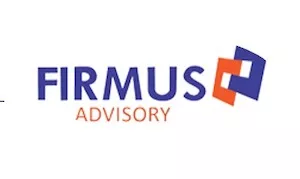- within Tax topic(s)
- in United States
- within Tax topic(s)
- in United States
- within Tax, Finance and Banking and Immigration topic(s)
- with readers working within the Retail & Leisure industries
As Ghana prepared to usher in a new era of revenue mobilization and fiscal reform, three major tax policies were set to take effect in July 2025. These reforms—the introduction of Value Added Tax (VAT) on non-life insurance premiums, a revised Energy Sector Fuel Levy, and the rollout of the Modified Taxation Scheme for informal sector operators—represented a bold move by the government to widen the tax base, reduce exemptions, and strengthen public finance.
Below is an in-depth look at each policy and its implications for businesses, consumers, and the broader economy.
1. VAT on Non-Life Insurance Premiums: A New Taxable Supply
Beginning July 1, 2025, a 15% VAT was applied to premiums paid on non-life insurance policies. This change, introduced under the VAT (Amendment) Act, 2023 (Act 1107), marked a significant shift in Ghana's taxation landscape.
What Did It Cover?
The VAT applied to general insurance products such as:
- Fire and property insurance
- Marine and travel insurance
- Burglary, liability, and personal accident insurance
- Workmen's compensation insurance
These services were classified as taxable supplies under the VAT Act, 2013 (Act 870), as amended.
What Was Exempt?
Motor insurance remained VAT-exempt due to its mandatory nature under Ghanaian law. The aim was to maintain affordability for vehicle owners and avoid disruption in compliance.
When Did It Apply?
All non-life insurance policies issued, renewed, or amended on or after July 1, 2025, attracted VAT. Policies issued and fully paid before that date were not affected unless altered.
VAT on Claims?
No VAT was charged on insurance claims, as claims represented compensation for losses and were not considered taxable transactions.
Insurer Responsibilities
Insurance companies were expected to:
- Issue clear invoices indicating VAT components
- Update accounting systems and train staff
- Register for VAT with the GRA
- Educate clients about the change
The Ghana Revenue Authority (GRA), in partnership with the National Insurance Commission (NIC), launched a public education campaign to support industry readiness and consumer awareness.
2. Revised Energy Sector Fuel Levy: Price Hikes for a Purpose
Ghana's Energy Sector Levy (Amendment) Act, 2025 (Act 1141) introduced a GH₵1 per litre increase in fuel levies, effective July 16, 2025. This affected petrol, diesel, marine gas oil, and naphtha—doubling the existing levy on some products.
The Numbers
- Petrol: Rose from GH₵0.95 to GH₵1.95 per litre
- Diesel & Others: Similar increases applied
- LPG: Remained at GH₵0.73 per litre
Why the Hike?
The government expected to generate GH₵5.7 billion annually, which would go toward:
- Repayment of over US$3.1 billion in energy sector debt
- Ensuring continuity of power generation through 2025
Pushback and Public Outcry
The policy faced criticism from various groups:
- GPRTU (Transport Union): Warned of fare hikes and even threatened a strike
- Opposition MPs: Claimed the levy was rushed through without consultation
- Think Tanks (e.g., ASEC): Called for structural reforms instead of quick tax fixes
Despite the backlash, supporters like the IMF described the levy as "prudent" for debt management. Analysts from CERPA projected revenue gains but cautioned that inflationary effects and exchange rate risks could temper the benefits.
Impact on Citizens
The levy was expected to trigger a 6–8% rise in fuel prices, with corresponding fare hikes between 10–15%. Low-income and rural communities were likely to feel the greatest strain due to higher transport dependency.
To view the article in full click here
The content of this article is intended to provide a general guide to the subject matter. Specialist advice should be sought about your specific circumstances.


